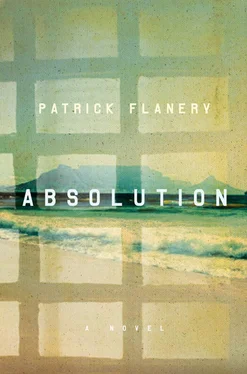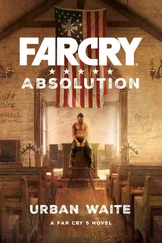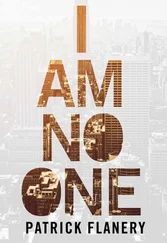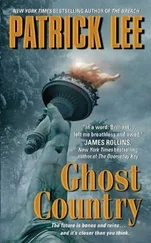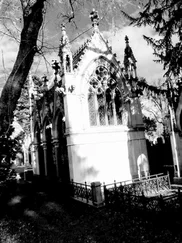‘I don’t have anyone else to ask,’ I say. ‘I mean, I wouldn’t know who to approach or where to begin. You understand that I’m not asking so much for the sake of the book, as for my own curiosity. Laura was a friend. She was almost like a mother to me then.’
‘No man, this is all ancient history,’ Timothy says, waving his hands, shooing the past back into the lounge. He stands and paces round behind his chair, still shaking his head. Lionel looks embarrassed, raises his eyebrows at me and gives a pained smile as Timothy reaches over for the bottle of wine, pours himself another glass and drinks it in loud slurps. He takes a book on Johannesburg from the shelf and cracks it open. It’s obvious that he knows something about Laura.
‘If you’re not going to tell Sam—’ Lionel begins, but Timothy interrupts him.
‘We’ve been through the resurrection of the dead already, all that poring over the past, the reading of bones. It was exhausting for all of us. It did no good, either. There’s nothing more to say about it, Sam. You don’t want to be asking these questions.’
‘I just want to know what happened to her. You don’t have to tell me anything, I accept that I can’t force you to, but if you know where she ended up …’ I’m aware of the pleading in my voice, uncomfortable because it reminds me of myself as a child, the way I pleaded with Laura, the ways I used to plead to my aunt, teachers, anyone who failed to give me what I wanted.
‘You want to know something?’ Timothy sighs, replacing the book on the shelf and turning to me, pointing with his glass. ‘What I can tell you is that Laura was on the wrong side of history. That’s what I can tell you.’
I don’t understand what he means. What he’s suggesting seems impossible. ‘You mean she was too militant?’
Timothy snorts, sips at his drink. ‘God, you really have no idea, do you?’
‘Come on, Tim, there’s no reason he should.’ Lionel edges forward on the chair as if he’s about to say more, but then Timothy puts out his arm and Lionel slides back into place.
‘She was on the wrong side, Sam.’ Timothy sits again; his voice is softer now, as though he’s making an effort to measure his tone against my expression. ‘She was on the wrong side and someone found her out. That’s all I know.’
‘But nothing like that came out in the TRC—’
‘The TRC was imperfect. It was incomplete. It does not represent the totality of late-apartheid history. Listen,’ he says, bringing his hands together like a preacher, ‘she was an embarrassment. No one wanted to talk about her — not us, and not the other side. There was, I don’t know, some kind of cover-up, and that doesn’t happen from the bottom. A cover-up needs a mandate, if you see what I mean. The family, thankfully, never pushed the case. If they had, who knows what would have emerged. We might actually know what happened to her.’
‘Then you don’t know?’
‘I only know that she went away with one of the others, and she never came back. The man who took her, he died not long after, killed by a letter bomb in Mozambique. If anyone knew what happened to her, and where she ended up, where she might be buried, he did. But he can’t tell us. So effectively she disappeared.’
The information comes at me like an invasion or an explosion. I feel assaulted, shattered, interfered with. I want them out of the house. It was a mistake to contact Lionel in the first place. I make sudden excuses, say that Sarah has an early morning. Lionel looks embarrassed and I hear Timothy say something under his breath like, ‘I told you it would end this way.’ Watching the car reverse down the driveway, all I can hope is that I won’t ever see them again. I don’t want to know their version of history.
Back inside, I tell Sarah what Timothy said. As I speak my hands and arms shake and I begin to lose my voice. I manage to tell her that I don’t know how to understand it. She holds on to me, listens as I heave and rant. Laura was supposed to be a friend of my parents, and all that time, I choke, she was deceiving them. Sarah doesn’t tell me to calm down or ask me to try to forget about it.
‘Is it possible,’ I say, seeing red everywhere I look, the room beating and buzzing around me, ‘that she sabotaged my parents?’ Sarah shakes her head. It’s a question she can’t answer.
*
Monday morning. Sarah flies to Angola for the week. I take her to the airport and then barricade myself in the house where I turn to Clare’s new book, which arrived today and is, perhaps ironically, the very distraction I need from thinking about Laura. I have difficulty believing what Timothy told me, and no reason to believe he’d lie. And yet it seems impossible that Laura would have been on the other side. It makes no sense, and at the same time it seems to make perfect sense — not just of her disappearance, but of the way my parents died.
I turn away from these thoughts, churning in a crazy cycle, almost sick with nausea, and hope to find solace, perhaps even insight, in Clare’s words.
Absolution has a tasteful matte cover with an image of a whitewashed Cape Dutch farmhouse in summer, surrounded by trees with a mountain rearing up behind it, all of it viewed through a broken windowpane with a snail creeping over shards of glass along the sill that frames the scene. If it weren’t for the distorting effect of the window, the image of the house in the landscape would almost be kitsch, a stereotype of the South African pastoral setting, a second-rate Pierneef, but I suppose that might also be intentional. With the framing device, however, it invites us to speculate on the nature and ownership of the house with the cracked window, and the person or persons who occupy it, who might be looking through the rippling broken glass, past the snail, at the elegant house in the distance. It could be a worker’s cottage on a wine estate, draughty and ill-lit, poorly maintained, close enough to the big house to have a good view of it without encroaching on the idyll, the goats on the lawn, the ducks in a shaded pond, squirrels and oaks imported from England. The text itself has nothing to do with the image, or at least nothing obvious. As I read I know that I’m hoping to find something, even an oblique reference, a whisper or a silence that might refer to me.
Of course there’s nothing. The book was written before I started interviewing Clare and I can’t detect so much as an indirect reference to me, not even a meaningful silence. I try not to be disappointed. By the time I finish it’s late evening, almost dark outside.
Standing in the kitchen, the doors and windows closed and locked though the air inside is stifling, I pour a glass of wine and hold the book at arm’s length, turning it over in my hands, feeling the smoothness of its cover. On the back the publisher has categorized the volume as FICTION, in case we have any doubts. But doubts are exactly what it seems like we should be having, because here is Clare, named in the text, and there is Marie, as well as Clare’s son Mark, who can’t be happy about the way his mother has represented him. The book offers what appears to be an accurate description of Clare and Marie’s unusual domestic arrangement, which is too intimate, too symbiotic to be only a business matter. While they are two professionals, employer and employee, they have become inseparable and interdependent in a way that speaks more of friendship or love than of contract and remuneration. I see Marie wheeling a lunch cart into Clare’s study, the silent communication between them expressed through the eyes and other body language — a barely lifted finger, the tiniest raising of the chin, a tightening of lips. It’s a kind of magic that two people should be able to read each other so fluently.
Читать дальше
